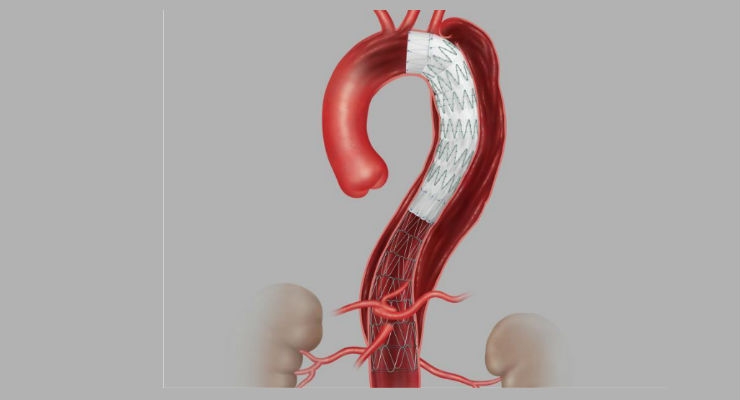Researchers at Vanderbilt University Medical Center uncovered a link between stiffening of the aorta and an increased presence of Alzheimer’s disease pathology.
The study appeared in the journal Neurology.
During the new study, 146 patients in late adulthood with no prior history of neurodegenerative or neurologic illness were examined.
“Participants free of stroke and dementia from the Vanderbilt Memory and Aging Project, an observational community-based study, underwent cardiac magnetic resonance to assess aortic pulse wave velocity (PWV, m/sec) and lumbar puncture to obtain cerebral spinal fluid (CSF),” the study says.
“Among our oldest participants, age 74 years and older, greater aortic stiffening is associated with in vivo biomarker evidence of neuroinflammation, tau phosphorylation, synaptic dysfunction, and neurodegeneration, but not amyloidosis,” the study also states.
“Central arterial stiffening may lead to cumulative cerebral microcirculatory damage and blood flow delivery to tissue, resulting in neuroinflammation and neurodegeneration in more advanced age.”


